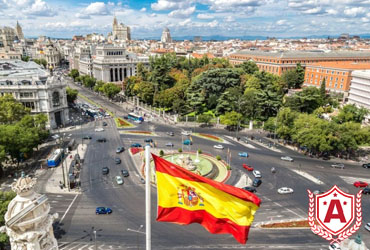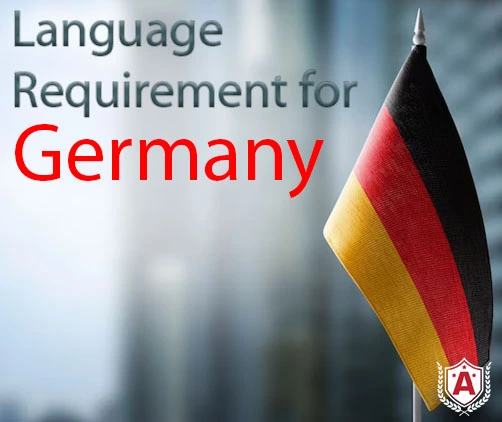 Spain welcomes international students from all over the world as the country offers a quality education at affordable fees. From Italy to Finland, Spain's educational institutions host a diverse range of nations and cultures, all intending to seek the information, skills, and certificates that the country has to offer. According to the most recent figures, approximately 194,745 international students enrolled in higher education in Spain. Only one year apart, the number of overseas students climbed by about 5% from 2018 to 2019. Owing to the country’s long, rich tradition of higher education, Spain's higher education institutions consistently rank high.
Spain welcomes international students from all over the world as the country offers a quality education at affordable fees. From Italy to Finland, Spain's educational institutions host a diverse range of nations and cultures, all intending to seek the information, skills, and certificates that the country has to offer. According to the most recent figures, approximately 194,745 international students enrolled in higher education in Spain. Only one year apart, the number of overseas students climbed by about 5% from 2018 to 2019. Owing to the country’s long, rich tradition of higher education, Spain's higher education institutions consistently rank high.
Spain is one of the most chosen destinations among foreign education enthusiasts for not one but several reasons. Spain offers all traditional levels of education, including bachelor's, master's, and Ph.D.
Spain has some of the lowest tuition fees in Europe, making the country an affordable choice for overseas students. It's vital to understand that if you're from an EU country, you'll pay the same prices as Spanish students, but if you're from outside the EU.
Bachelor's degree tuition prices range from 700 to 3,000 euros per annum.
Master's degree tuition fees range from 1,000 to 5,500 euros each year.
Private universities determine their tuition rates, reaching 20,000 EUR per year.
The public universities in Spain are state-funded, which means the local government sets their fees. Government-set tuition prices at public institutions vary depending on your level of study and course of choice.
Tuition fees in Spain are calculated per credit studied instead of the semester or academic year.
The Spanish universities are members of the European Higher Education Area (EHEA). Thus, the official degrees here are recognized for academic and professional purposes in 53 countries worldwide. 45 of the 53 countries are European.
12 Spanish universities are among the top 500 in the QS World University Rankings for 2022, with Universitat de Barcelona ranked 168th.
Spanish universities offer scholarships and financial aid to deserving candidates.
All the educational institutions in Spain follow modern ways of teaching.
The teacher-to-student ratio in the universities in Spain is well-balanced.
Students get a chance to explore international exposure at Spanish educational institutions.
In Spain, there are quite a handful of popular courses. There are numerous options open to you, whether you pursue a bachelor's degree or a master's degree. In addition, Ph.D. degrees in various fields are also available in Spain.
Humanities and Arts: These are among the most popular courses in Spain. With this degree, students can work in a variety of industries, ensuring a rewarding career for the rest of their lives. English language, visual arts, history, Fundamentals of Philosophy, Spanish Literature, Western American Literature, Popular Music, Environmental Ethics, and other subjects are among the most popular to work in with this degree.
Science: The degree options include microbiology, mathematics, physics, chemistry, and various other subjects. In Sciences, both graduate and undergraduate degrees are available. With a Sciences degree, students can go in a variety of directions, opening endless opportunities for a fantastic future and a rewarding profession.
Law: The Law is another popular field for young people to pursue in Spain. Whether you want to be a lawyer, or something else related to the law, Spain is a great place to start. There are a number of popular college courses in Spain, particularly in Madrid, that provide a variety of law courses for students who want to take up the legal profession. This course attracts students from all over the world since it explains the foundation and operation of the legal system in European countries. International Criminal Law is another popular college course in Spain.
Hospitality Management: It is another prominent course offered by Spanish colleges. Hotels, motels, restaurants, and other similar establishments all fall under the umbrella of hospitality management. Students can pursue bachelor's or master's degrees in hospitality management. However, the length of time required varies depending on the specific degree and the university to which you intend to enroll.
Marketing and Finance: Also one of the most popular courses in the country, Marketing and financing degrees are available at both the graduate and undergraduate levels, and graduates have a wide range of career options that include Financial Analysts, Marketing Consultants, Account Executives, Advertising Executives, Product Managers, and many other positions
Spain has a vast number of universities, many of which have a strong international reputation and are ranked well in international rankings. Spain has 76 universities, which are a combination of public and private institutions. There are 24 private schools among the 76, including seven affiliated with the Catholic Church. The capital city of Madrid and the second city of Barcelona have the highest concentrations of leading Spanish universities.
Some of the most notable Spanish universities include the following:
University of Barcelona
Complutense University of Madrid
Universidad Autónoma de Madrid
University of Santiago de Compostela
Universitat Autònoma de Barcelona
Universitat Pompeu Fabra
University of Navarra
University of Granada
Universitat Rovira i Virgili
University of Valencia
Universitat Politècnica de Catalunya
Universidad Carlos III de Madrid (UC3M)
Spain is also home to some great business schools, including 3 of Europe’s top 10 business schools:
IE Business School
IESE Business School
Esade Business School.
International students can apply for a variety of scholarships, grants, and subsidies in education. Scholarships and financial aid are available from some national and international organizations to suitable students. Furthermore, Spanish institutions have complete autonomy in determining their own scholarship and grant policies.
Choosing a course to study in Spain is not difficult. However, before applying to any course, you must have a clear idea about what you want. There are a myriad of courses available in Spain, so you will have no difficulty finding a course of your interest. Although there is a growing trend toward more English-language taught degree programs, most colleges in Spain focus on teaching in Spanish. Thus, you'll need to know even to apply. Without a basic knowledge of the language, the application will be difficult.
There is no centralized application system for Spanish universities, and each university has its own admissions procedures and dates. You may be required to take an entrance exam, though EU students and individuals who have completed the International Baccalaureate are not required to take such a test.
Here is a brief idea about the common admission process:
Finalize the course you want to study.
Choose your university.
Apply for the course at the chosen university, and wait for the acceptance letter.
Submit the application documents in original to confirm your place.
Pay the tuition fees after receiving the acceptance letter from the university,
Apply for a Visa at the nearest Spanish Embassy.
Finish the visa procedures and book your tickets to Spain.
To study in Spain, you may need a visa or a residency permit, depending on your nationality. Students from the European Union, as well as Norway, Switzerland, Liechtenstein, and Iceland will not require a visa to live and study in Spain. To receive a residence certificate, they will need to register with your local Spanish authorities within three months of their entry into the country. EU students will need a passport or national identity card, as well as proof that they've been accepted onto a course, to receive this. Students coming from any non-EU country will need a visa to study in Spain for more than three months. Specific criteria may differ depending on the country you are applying for a visa.
You must apply for a student visa type D in your native country. There are two types of applications: open and 180 days, so make sure you apply for the proper one.
You cannot apply for a visa unless you have been accepted into a Spanish university program, have valid health insurance, and have sufficient cash. You will have to submit a letter confirming parental support.
You will also have to prove no criminal record and a medical certificate.
If you have a work permit, you will be permitted to work if it does not interfere with your studies.
Within 30 days after your arrival, you must apply for an Autorización de Estancia por Estudios, a temporary permit granting you the right to remain in Spain. This must be renewed every year and is contingent on your academic performance.
The documents required to study in Spain vary from university to university. However, here are the common documents that will be needed in general for studying in Spain:
Application forms
Invitation letter from your chosen university
Valid student visa
Valid international passport
Copy of the International Passport
Health Insurance
Authenticated Secondary School Leaving Certificate
Transcripts of high-school education
Recommendation Letter
Academic Transcripts for master’s students detailing the courses and grades for the past years.
English proficiency certificate - IELTS or TOEFL
Spanish proficiency certificate
Medical and mental fit certificate
COVID-19 vaccination certificate
Passport size photograph
The eligibility criteria to study in Spain depends on the course you are applying for. Here are the general eligibility criteria:
You must pass class 12 and belong to a recognized board of education to apply for graduate courses in Spain.
A bachelor's degree or an equivalent degree is required to apply for a master’s degree.
You must have a bachelor's and master's degree to study in a Doctoral program.
Spain is a popular choice among Indian students seeking a low-cost international education. Being a student in Spain is a once-in-a-lifetime opportunity. Thus, several students flock to Spain in order to gain international education. In Spain, Indian students will have plenty of opportunities to meet other Indian students. In the country's active and diverse student community, you'll make a lot of friends. The students here study hard, yet they still find time to have fun.
| Purpose | Expense |
|---|---|
| Accommodation (Monthly rent) | €700 to €1100 |
| Student Residence Halls (Monthly rent) | €360 to €650 |
| Apartment Rents (Monthly rent) | €200 to €1000 |
| Basic Utilities | €100 - €120 |
| Groceries | €200 - €450 |
| Internet | €20 to €30 |
| Public Transport (Monthly pass) | €40 - €60 |
Students in Spain can choose from a variety of native cuisines, including "paella," "escabeche," and "Merienda." Lunch in a low-cost restaurant will set you back roughly 10 EUR, while a three-course meal for two at a mid-range restaurant would set you back around 35 EUR. Aside from that, there are several Indian eateries to satisfy the Indian palettes that are homesick.
With a myriad of courses available, Spain is a suitable destination for anyone seeking international education. The country’s education standards make it one of the most valuable degrees to get. Students passing out from a recognized Spanish educational institute can get employed in prestigious organizations across the world.
Anighdha is a reputable education consulting firm dedicated to assisting students in grabbing the best options for further education. Because we are linked with prominent institutions in Spain, many students have put their faith in us. Being a dependable and trusted organization, we guarantee 100% authentic consultation and services.
 Spain is a lovely Western European country with a rich history and culture. Spain is one of Europe's largest countries and the world's fourth most popular tourist destination. It combines urban professional life with more lively and appealing regional cultures. It also provides numerous opportunities for leisure and enjoyment. Spain is, without a doubt, one of Europe's most popular tourist destinations. A lovely country with a long history and rich culture, Spain is famed for its architecture, food, and wonderful climate.
Spain is a lovely Western European country with a rich history and culture. Spain is one of Europe's largest countries and the world's fourth most popular tourist destination. It combines urban professional life with more lively and appealing regional cultures. It also provides numerous opportunities for leisure and enjoyment. Spain is, without a doubt, one of Europe's most popular tourist destinations. A lovely country with a long history and rich culture, Spain is famed for its architecture, food, and wonderful climate.
What is the duration of study in Spain?
A bachelor's degree normally lasts four years, and a master's degree takes 1-2 years to complete. A Spanish doctorate (Ph.D.) can take up to three years to complete, or five years if you study part-time.
What is the best location to study in Spain?
Some of Spain's greatest universities are concentrated in Madrid and Barcelona, but institutions may be found throughout the country.
Is it expensive to live in Spain?
The cost of living in Spain varies by region, but it is possible to live comfortably in Spain on a student budget. Your monthly living expenses will likely be between €900 and €1,100, depending on where you choose to study.
Is Spain a safe country for international students?
Yes, Spain is a safe country for international students as its universities have protocols to safeguard its students.
What are the two capitals of Spain?
Madrid is the capital and largest city; Barcelona, the capital of Catalonia, is Spain's second-largest city.
Get free 1-on-1 counselling with our experts

The German language is one of the official languages of Germany so proficiency i...
June, 09 2023
This Blog post will provide important insights into student’s life. This blog ...
May, 17 2023
Germany offers a wide range of opportunities for students to pursue higher studi...
May, 13 2023
If you are looking for a new job in Germany, or if you are an expat considering ...
April, 29 2023
Germany is a popular destination for students seeking a quality education at an ...
April, 26 2023
In recent years, more and more students have chosen to study in Germany. This be...
April, 22 2023
There are a variety of scholarships available in Germany, from government-sponso...
April, 17 2023
If you're looking for a way to make some extra cash while you're studying, Germa...
April, 07 2023